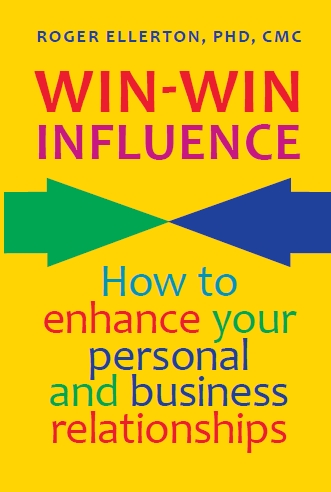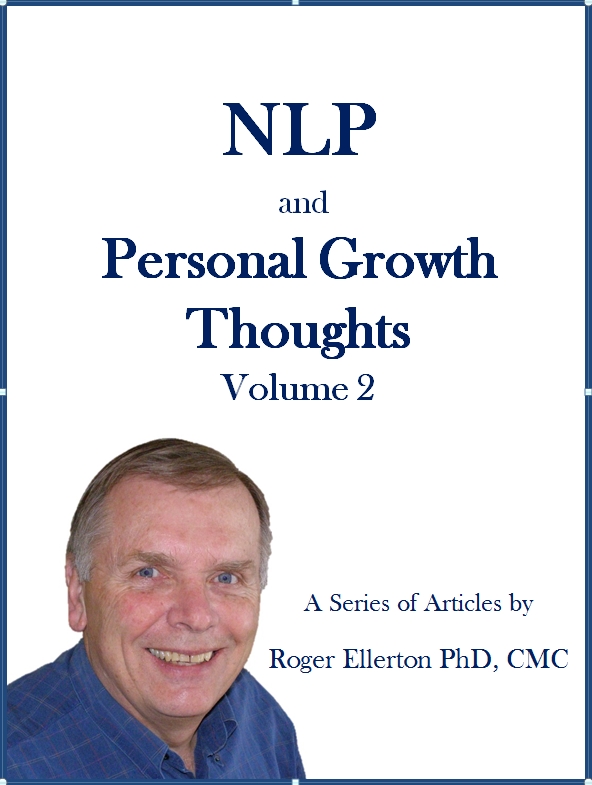Selecting an NLP Trainer
By Roger Ellerton Phd, ISP, CMC, Renewal Technologies Inc.
This article may not be republished without written permission from Roger Ellerton/Renewal Technologies Inc. If you republish this article without permission, you will be in violation of copyright law and sent an invoice. You may share this and other pages with your friends by linking directly to this page from your website or blog.
I was wondering what to write for this month's article when I received an e-mail from Peter in Australia asking for advice in choosing an NLP trainer. Once I had replied to him, I thought, "What a great idea for an article." So here are my thoughts, based on my experiences as a student of NLP and as someone who earns part of his living as an NLP trainer. In no particular order, this is what I would look for:
- Make sure your trainer is a certified NLP trainer and not just a Master Practitioner.
- Ensure that the trainer's values are in alignment with your own - interview him/her in person, by phone or e-mail.
- Ask for references. Realize your potential NLP trainer may only give you names of people who enjoyed his/her training. However if you ask enough questions and listen for what is not said, you can discover a great deal about the trainer and his/her training.
- Determine who will actually be delivering the training. Some organizations have big names attend their NLP training for a morning or afternoon to speak on a particular subject. Sometimes this module is not fully integrated into the training and you may be better off attending a presentation by this big name at a later date when you have a better understanding of NLP and can ask specific questions of him/her.
- Address your own personal growth. For me, NLP training must include my own personal growth, therefore I would ask, "Do I feel safe with this trainer?"
- Determine the size of the class. Some NLP trainers have small intimate trainings (10 - 25 students). Other trainers offer a very low cost and put as many students in the room as possible and use untested Master Practitioners as coaches during the exercises and breakout sessions. Yes, you get a well known signature on your certificate and how much value did you really receive from the training?
- Ask for an outline of the course and if the training has a particular focus - hypnosis, NLP New Code, NLP in business, coaching, personal growth, and so on. Pick a training that is in alignment with your interests.
- Establish what support is available after your training - telephone assistance, one-on-one coaching, etc. Some NLP trainers provide on-going support at little or no cost; other trainers, particularly those with large classes, can't even remember that you were in their course.
- Ascertain the training team's credibility - written NLP articles, books, given public presentations - or are they 'wanta be's' operating out of their basement? Will your potential NLP trainer will be in business over the long-term? I have seen too many well-intentioned NLP trainers get into the business and then disappear within a year.
- Assess if you are getting value for your money. Paying a high price does not mean the training is better.
- Ensure the certificate that you receive is recognized by at least one major NLP body. There is no one certifying body in NLP.
- Determine the length of the training and what it involves. NLP practitioner training should involve at least 120 hours of study. This can include pre-study, homework, special coaching sessions and classroom time. Make sure there is sufficient classroom time for you to interact with the trainers and to practice the NLP techniques.
- If it is online training, determine what support you have during and after the training.
- Verify the ratio of certified NLP trainers to participants and ratio of coaches to participants.
- Make sure the training organization you select stands behind their program - Is there a money back guarantee?
Enjoy your NLP training. It is well-worth your investment.
Author: Roger Ellerton is a certified NLP trainer, certified management consultant and the founder and managing partner of Renewal Technologies.
Copyright © 2006, Renewal Technologies Inc. All rights reserved.








